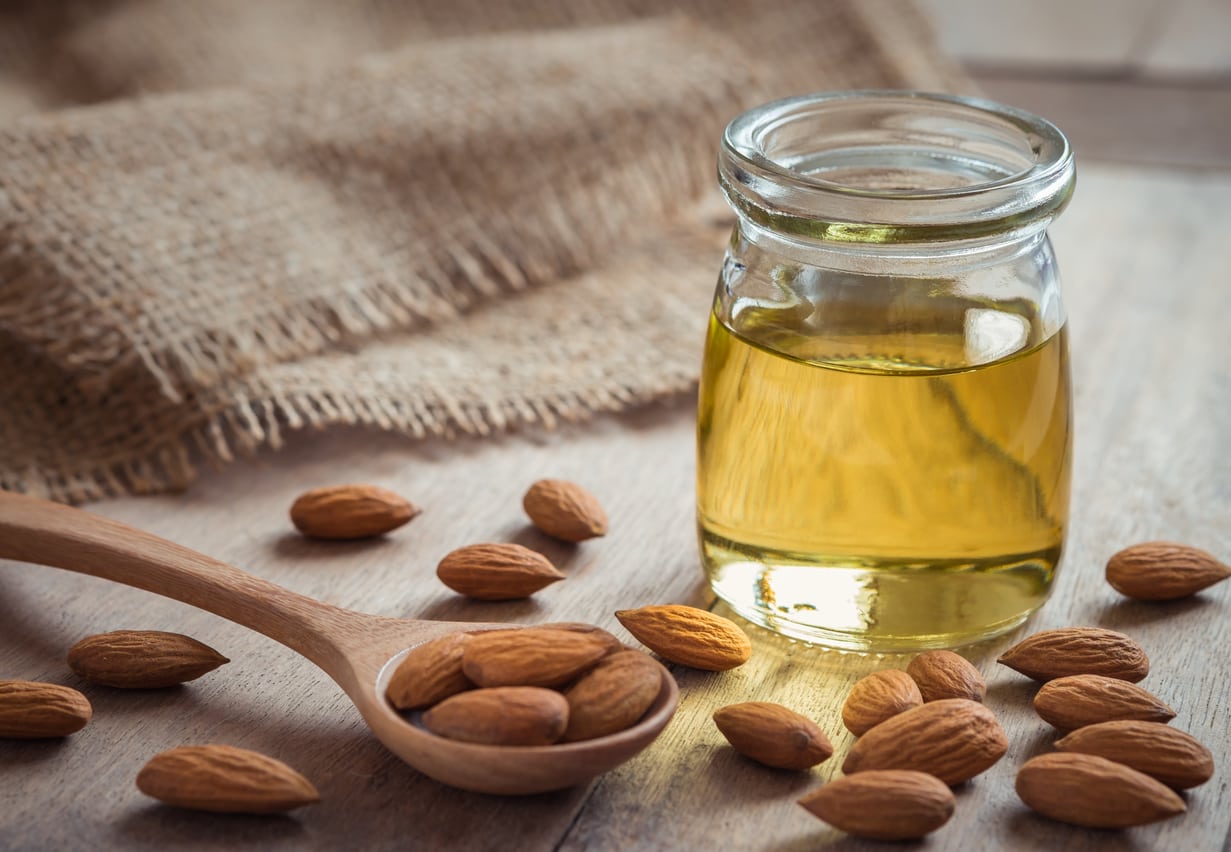
Of late you may have noticed the wide variety of oils available not only for cooking but for cosmetic use as well. Almond oil is one such oil, and no it’s nothing new. Almonds were the hottest commodity on the “Silk Road” between Asia and the Mediterranean, and of choice for practitioners of Ayurveda for more than 5,000 years. What is almond oil and how do you use it? The following article contains almond oil information about the uses of almond oil.
What is Almond Oil?
Most of us are aware of the health benefits of eating sweet almonds. Almond oil has even more health benefits than crunching on the tasty nut. Almond oil is simply the essential oil pressed out from the nut. This pure oil has been found to be rich in Vitamin E, monounsaturated fatty acids, proteins, potassium, and zinc, making it not only heart healthy but good for our skin and hair.
Almond Oil Information
Almonds are not actually nuts, they are drupes. There are both sweet and bitter almonds. Bitter almonds are usually not eaten since they contain hydrogen cyanide, a toxin. They are, however, pressed into bitter almond oil. Usually, though, almond oil is derived from sweet almonds, the kind that are good to snack on. Native to the Mediterranean and Middle East, the largest producer of almonds in the United States is California. Today, 75% of the world’s almond supply is produced in California’s Central Valley. There will be a subtle difference in almond oil depending on the variety and location where the almond tree is grown. People with nut allergies should avoid using almond oil, but the rest of us are wondering how to use almond oil.
How to Use Almond Oil
There are many almond oil uses. Almond oil can be used to cook with. It is chock full of healthy fats that actually help to reduce cholesterol. Cooking with almond oil is certainly not the only way to use it. For centuries, almond oil has been used medicinally. As mentioned, Ayurvedic practitioners have been using the oil for thousands of years as massage oil. The oil has been used to treat vascular problems such as spider and varicose veins as well as to treat liver ailments. Almond oil can be used as a laxative and, in fact, is milder than most laxatives, including castor oil. It is said to generally boost the immune system. The oil is also an anti-inflammatory and analgesic. Almond oil has been found to possess mild antioxidant properties and can be used topically to improve the skin. It is an excellent emollient as well and can be used to treat dry skin. The oil improves the texture and moisture absorption of hair as well as treating dandruff. It also treats chapped lips and purportedly can heal scars and stretch marks. One caveat regarding the use of this oil on skin or hair is that it’s oily and can cause clogged pores or skin breakouts, so a little goes a long way. Disclaimer: The contents of this article is for educational and gardening purposes only. Before using or ingesting ANY herb or plant for medicinal purposes or otherwise, please consult a physician or a medical herbalist for advice. Do not use if any nut allergies are known.
Sign up for the Gardening Know How newsletter today and receive a free copy of our e-book "How to Grow Delicious Tomatoes".

Amy Grant has been gardening for 30 years and writing for 15. A professional chef and caterer, Amy's area of expertise is culinary gardening.
